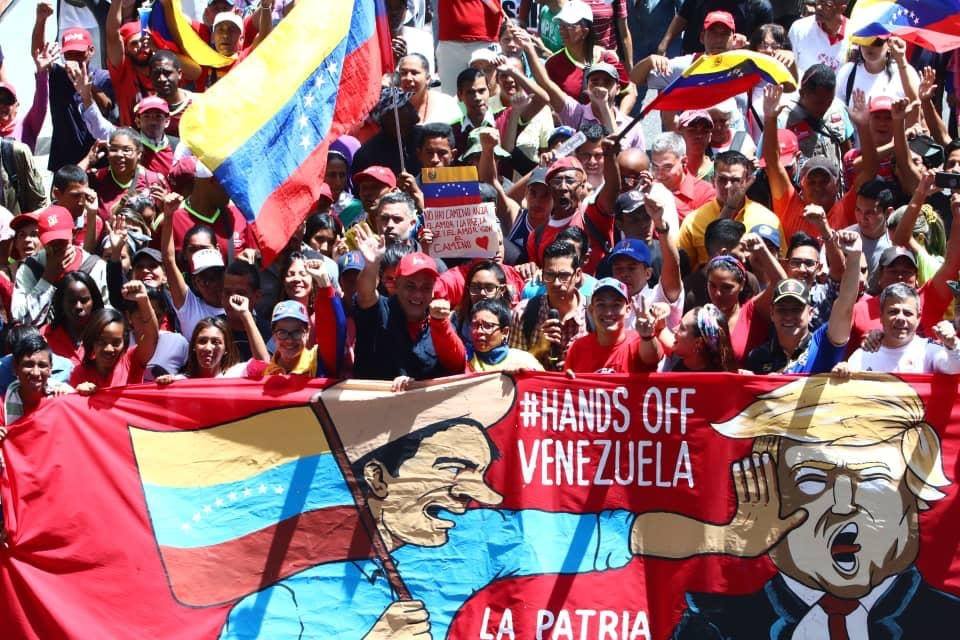Venezuela is in a dire situation - its economy has been a cataclysmic failure, its "democratically" elected government under Nicholas Maduro has been described as an authoritarian regime, and grave human rights violations in Venezuela have become the new normal.

The journey of Venezuela from 1950 to 2020 has been a story of Riches to Rags - Going from being the world's fourth wealthiest country, boasting a per capita GDP of $7,424 exceeded only by the United States, Switzerland and New Zealand, in 1950 to ranking 68th in the world in terms of per capita GDP in 2020. The country is now inundated with debt and is facing hyperinflation.
What was responsible for this dramatic downfall - falling oil prices, a string of poor government decisions, or economic sanctions?
Venezuela has the largest proven oil reserves in the world and the government depends on crude exports for the lion's share of its income and foreign currency. Like many petrostates, Venezuela has struggled to diversify its economy, leaving it extremely vulnerable to boom and bust cycles - whenever oil prices are high, government coffers overflow but when oil gets cheap, they lie empty.
Rising crude prices in the 2000s helped the late president, Hugo Chavez, utilize the nation's oil wealth to fund welfare programmes aimed at redressing inequality, poverty and unemployment. Though Chavez was successful in reducing poverty and unemployment rates, he did it at a huge cost - that being his very own economy.
The Atlantic Council deputy director Paula Garcia Tufro described the situation perfectly - "They didn't save up for a rainy day. They didn't make the long term investments."
When oil prices started to plummet in 2014, the new government of Nicholas Maduro was ill-prepared to absorb the blow. With national debt rising, and the country's economy shrinking, Maduro took to printing more currency to pay off the national debt. But, things weren't as easy as Maduro might have imagined them to be. Uncontrolled printing of notes leads to high inflation rates and the lack of restraint on Maduro's part pushed the country into hyperinflation in 2015, with inflation rates reaching as high as 15000% in 2020. The Bolivarian Dollar is practically worthless, and the new cryptocurrency 'Petro' introduced by the government in 2018 is expected to meet the same fate.
With rising hyperinflation, the price of everyday goods has become extremely high - food shortage problems have become so severe that one in every three people in Venezuela struggle to put enough food on the table to meet the minimum nutritional requirements. Once-eradicated diseases like cholera and malaria have returned, and children increasingly are dying of hunger and malnutrition. The economy however, isn't the only problem on the table. Another issue tormenting Venezuela is its political impasse.
After the first term of Nicholas Maduro, there was grave dissatisfaction among the Venezuelan public. But just like every other dictator, Maduro didn't give up on power. Having suppressed all opposition, Nicholas Maduro was elected for another 6 year term in May, 2018. These elections however, were condemned and rejected by most countries in the international community, for not being free, fair or legitimate. Several political leaders were censored, while others were prosecuted or sent to exile. The right to participate in political affairs and to run for election was violated. Alongside this, the voter turnout was just 46% - the lowest ever in Venezuelan history.
The opposition parties rejected these elections, and Juan Guaido, the leader of the opposition party, proclaimed himself to be the interim president of Venezuela. His claims were supported by many countries, especially the USA, Canada, Brazil and the EU, with the major supporters of Maduro being Cuba, Russia and China. In response, the United States, Canada and the Eurpoean Union imposed economic sanctions on Venezuelan officials on grounds of narco terrorism and crimes against humanity. Their demands for free and fair elections in the region were outright rejected by Maduro.
Rather Nicholas Maduro expressed that the economic turmoil comes from the US imposed economic sanctions on Venezuela, given that Venezuelans are directly forbidden from transacting using the US Dollar, the set reserve currency of the World since the institution of the Bretton Woods agreement.
Now with Venezuela's murder rate reaching a crescendo and blackouts becoming a near-daily occurrence, many Venezuelans have migrated to other nations, in search of a better life. Mass Migration has had a severe impact on all Latin American countries, and the economic implications of the migration have been quite significant.
The people of Venezuela need aid; they need justice; they need the international community to resolve the situation by cooperating rather than making their situation even more terrible by arguing to fulfil their ulterior motives.
A problem as grave as this requires not coercive action but stable diplomacy, and it is upto the World Forum to decide as to whether they must steer a Nation and its people towards a cliff or if they should try to uphold the solemn right to a good, just life for all people."